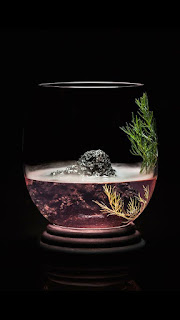HISTORY OF MOCKTAILS
HISTORY OF MOCKTAILS: Mocktails, short for "mock cocktails," are non-alcoholic beverages designed to mimic the flavors and presentation of traditional cocktails. The history of mocktails is intertwined with the broader history of cocktails and the evolution of non-alcoholic beverages. Here's a brief overview:
The Shirley Temple: One of the most famous mocktails, the Shirley Temple, is said to have been created in the 1930s. This drink, typically made with ginger ale, grenadine syrup, and a maraschino cherry garnish, was named after the famous child actress. It became a popular choice for children and non-drinkers.
Evolution and Popularity: Mocktail recipes continued to evolve over the years, with bartenders and chefs experimenting with various ingredients and flavors. These non-alcoholic beverages gained popularity as people started to seek healthier, non-alcoholic alternatives while still enjoying the experience of a well-crafted drink.
Modern Mocktails: In recent years, the craft cocktail movement has extended to mocktails. Mixologists and bartenders around the world have embraced the art of crafting sophisticated and creative non-alcoholic cocktails. They use a wide range of ingredients, including fresh fruits, herbs, spices, and unique syrups, to create complex and flavorful mocktails.
Wellness and Health Trends: As health and wellness trends have grown, so has the demand for mocktails. Many people choose mocktails as a healthier alternative to alcoholic drinks, and restaurants and bars now often feature dedicated mocktail menus.
Cultural Influence: Different cultures have their own variations of mocktails, often rooted in traditional recipes. For example, the Middle East has a rich tradition of non-alcoholic beverages like mint tea and fruit-infused drinks.
Today, mocktails are enjoyed by people of all ages and backgrounds, and they continue to evolve with the introduction of new ingredients and flavor combinations. Whether it's for health reasons, personal preference, or as part of a larger cultural tradition, mocktails have secured a permanent place in the world of beverages





Comments
Post a Comment